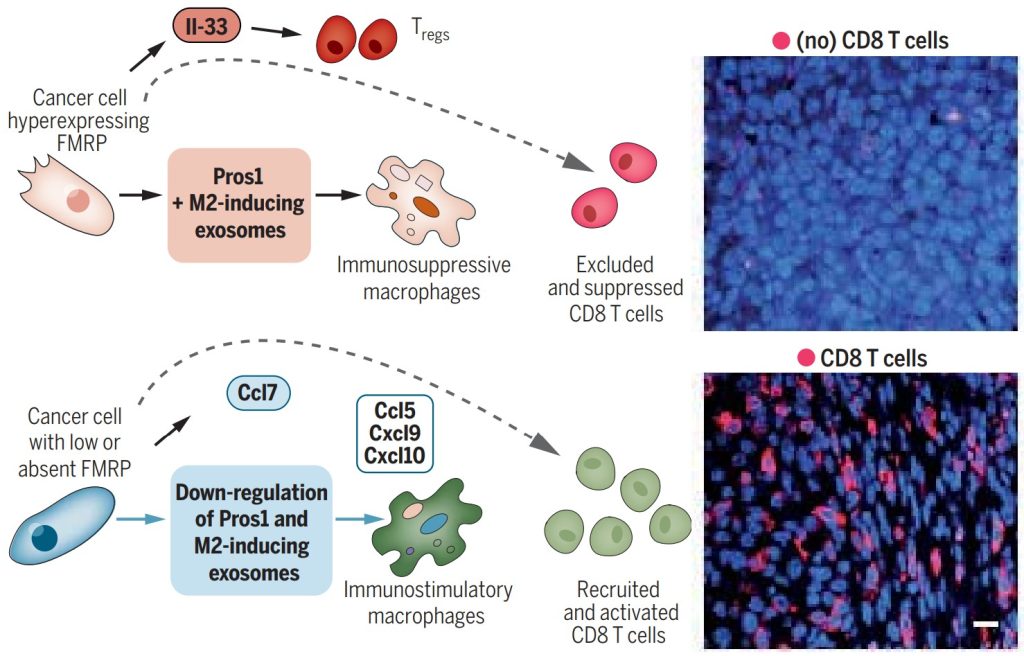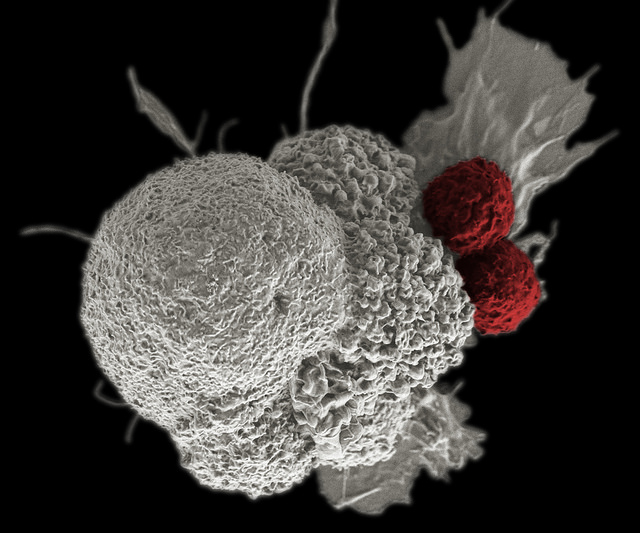A team led by scientists at the Swiss Federal Institute of Technology Lausanne (EPFL) have identified a mechanism of immune evasion in solid tumors that involves the up regulation of FMRP (fragile X mental retardation protein). FMRP, a collection of protein isoforms encoded by alternatively spliced versions of the FMR1 gene, binds RNA and regulates mRNA stability and protein synthesis, generally in neurons and glia in the brain.
The study published in the journal Science on November 18, 2022, reports genetic inactivation of FMRP in cancer cells reduced the growth of cancer and increased the vulnerability of tumors to immune T cells in mice.
Evasion of immune system is a common ploy among cancers. It enables tumors to thrive under the immune radar and resist immunotherapies. Increasing the vulnerability of tumors to the patient’s own immune attacks through strategic immunotherapies has shown promise in treating some but not all cancer patients. Even among patients who do respond positively to immunotherapies initially, the success can be limited or short-lived.
There is therefore an unmet and urgent clinical need to better understand the cellular and molecular mechanisms underlying immune responses to cancer and use these mechanistic insights to develop effective treatments.
To address this need, lead author of the study, Qiqun Zeng, PhD, scientist and Merck Serono chair in oncology at EPFL, and his colleagues investigated the potential role of FMRP in immune evasion of solid tumors. Earlier studies have shown that FMRP plays a role in tumor progression. Gene signatures associate FMRP expression in cancers with poor prognosis and reduced response to therapies in cancer patients. But little is known about FMRP’s exact function in cancer and immune regulation.

Mechanistically, the authors suggest that FMRP creates a multifaceted barrier to the recruitment and expansion of T lymphocytes within tumors, which allows them to evade immune destruction. FMRP represses a chemoattractant (CCL7), and up-regulates three immune modulators—interleukin-33 (IL-33), tumor-secreted protein S (PROS1), and extracellular vesicles.
“The widespread expression of FMRP in solid tumors, concomitant with induction of its cancer regulatory network, constitutes a previously unappreciated mechanism whereby tumors evade immune destruction,” the authors noted.


